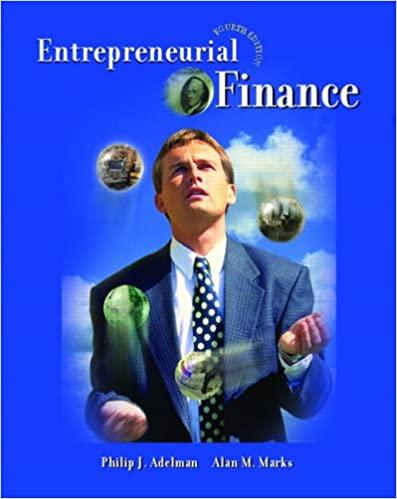Question
The following table shows exchange rates between three different currencies: Currency:..........in US$........per US$ UK Pound...........1.50.............0.667 Polish Zloty........ 0.20..............5.00 Japanese Yen.....0.01...........100.0 Vladmir is currently in Warsaws
The following table shows exchange rates between three different currencies: Currency:..........in US$........per US$ UK Pound...........1.50.............0.667 Polish Zloty........ 0.20..............5.00 Japanese Yen.....0.01...........100.0 Vladmir is currently in Warsaws airport, about to fly to Tokyo. He has 5000 Polish Zloty in his wallet. Using the exchange rates above, which of the following comes closest to the number of Japanese Yen hell receive?
| 20,000 Yen | ||
| 5,000 Yen | ||
| 100,000 Yen | ||
| 500 Yen | ||
| 1,000 Yen | ||
| None of the Above |
Using the following table containing exchange rates, answer the following question. Currency:..........in US$.........per US$ UK Pound............1.5.............0.6777 Polish Zloty........ 0.20........... 5.000 Japanese Yen.....0.01............100.00 Suppose that today a Big Mac costs $3.00 in the U.S. and 2.0 Pounds in the UK. Using the exchange rates above, what conclusion can be reached with regard to purchasing power parity (PPP)?
| PPP Holds | ||
| PPP does not hold, and Big Macs are relatively cheap in the UK | ||
| PPP does not hold, and Big Macs are relatively expensive in the UK | ||
| None of the Above |
This question is a variant of the Sport Hotel example that was presented in class, in the class notes, and in the Real Option chapter. The original problem stated that in the first year, costs would total $1m. In Year 2, costs would be $2m. In year 3, costs would be $2m for a total of $5m. The change to consider is this: suppose that the value of the hotel is one of two values: $9.5 million if the city is successful in obtaining the franchise (and not $8 million as in the original problem) or $3.3 if the city is not successful in obtaining the franchise (and not $2 million as in the original problem). All other aspects of the problem are the same as originally presented, such as the costs per year. Assume that the probability of obtaining the franchise is 50%. Incorporating these new hotel values from above, and the real option, what is the new NPV of the project?
| $1.4m | ||
| $4.5m | ||
| $2.25m | ||
| $1.75m |
Step by Step Solution
There are 3 Steps involved in it
Step: 1

Get Instant Access to Expert-Tailored Solutions
See step-by-step solutions with expert insights and AI powered tools for academic success
Step: 2

Step: 3

Ace Your Homework with AI
Get the answers you need in no time with our AI-driven, step-by-step assistance
Get Started


